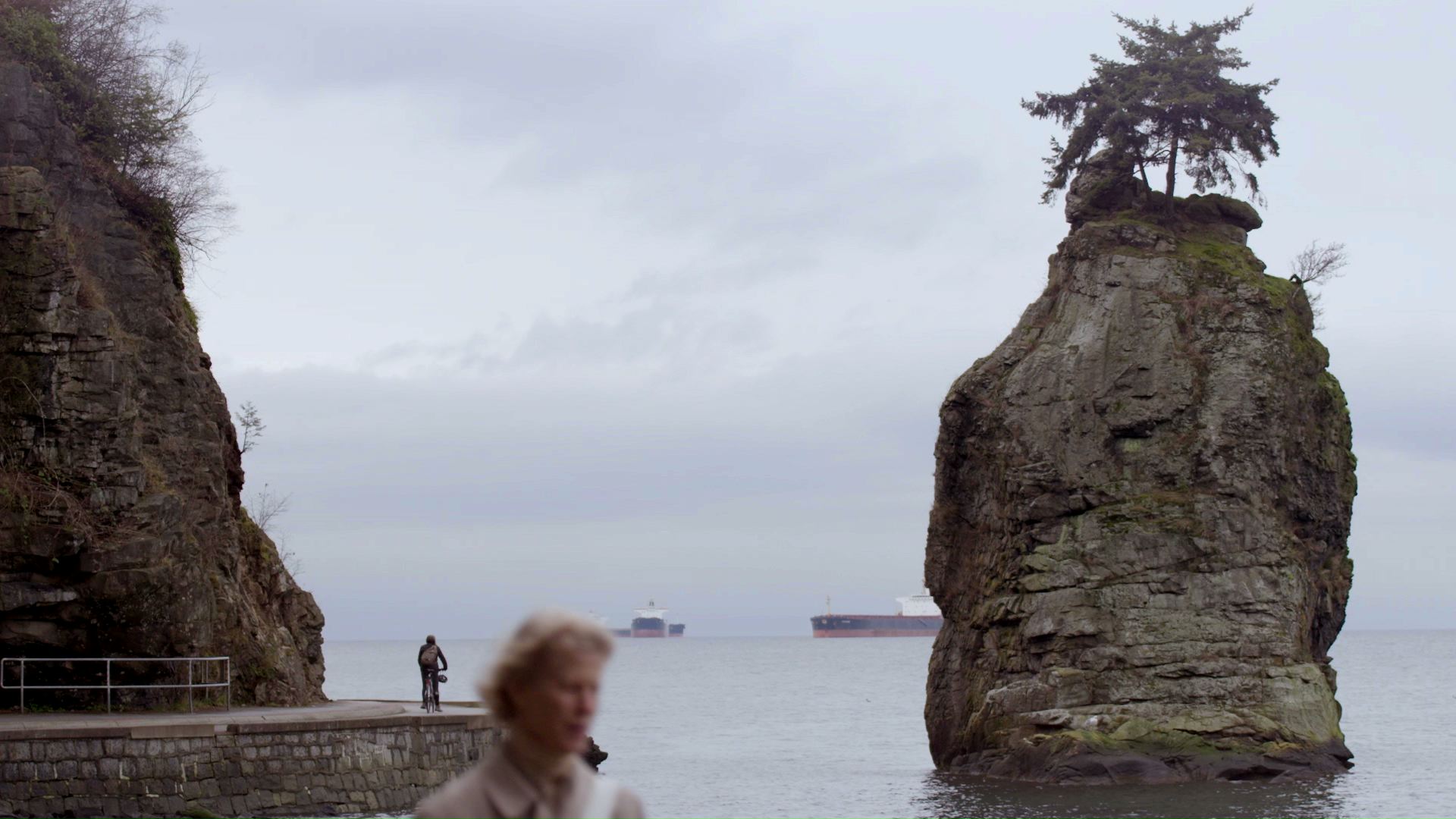
Production still from the Vancouver hour in Art21’s series Art in the Twenty-First Century, Season 8, 2016. © Art21, Inc. 2016.
Pamela Mason Wagner is an award-winning director recognized as one of New York’s most versatile non-fiction storytellers. Her experience with contemporary subjects along with dramatically told historical docu-dramas made her the perfect fit to direct the Vancouver hour of Art in the Twenty-First Century Season 8.
A director, producer, and writer her numerous documentary films have broadcast on prime time television channels including PBS, CBS, ABC, NBC, Discovery, Discovery ID, National Geographic, History, TLC, Hallmark, and MSNBC. The recipient of many awards, she is a graduate of Dartmouth College.
Lindsey Davis: How was working for Art21 different than other projects you’ve done?
Pamela Mason Wagner: The ability to develop a story over the course of a year along with the opportunity to photograph a city in all four seasons was an unusual gift. Normally a documentary budget allows only one or two trips to a location so the chance to record changes over time was critical to telling stories about artists. Artistic work is so process driven, that to document the beginning, middle and end, you need to be able to show up multiple times for the various stages of the process.
LD: What was the biggest revelation for you in the Vancouver hour?
PMW: I confess my knowledge of the art world was mostly driven by what I’d seen in New York (my current hometown), and in Los Angeles (the place I grew up). I had no idea there was a world class art scene in Vancouver, B.C. I have Canadian friends from college, and I’m used to the typical Canadian inferiority complex toward the U.S. But folks in Vancouver have absolutely no inferiority complex. They know their scene rivals the art scene in Paris—or any other art capital.
Production still from the Vancouver hour in Art21’s series Art in the Twenty-First Century, Season 8, 2016. © Art21, Inc. 2016.
LD: Which challenges in shooting Vancouver were the hardest? Which were the most exciting?
PMW: I know it’s not as exciting but the question really should be: what made shooting in Vancouver so easy! Producer Wesley Miller found the most amazing local Director of Photography, Greg Bartels. Greg not only knows the city inside and out, but he can do anything with a camera. The day he pulled out his new hover board and started filming sculpture in the round, using the Ronin camera rig to create the steady cam look, and the hover board to duplicate what a complicated dolly track might accomplish, I knew we were in good hands. The challenge was really: we can’t film everything so what do we leave out? Fortunately our editor Mary Ann Toman knew just what to cut out to keep us true to our story arc.
LD: Can you describe the process of reenacting Jeff Wall’s photographs for the episode?
PMW: We did not reenact Jeff Wall’s photographs. Rather we received rare permission to shoot on his set while he was creating his work. Our crew filmed over the course of a week. There were ground rules about what could and couldn’t be shot by our crew. Jeff didn’t want us to reveal details that would not appear in his final photograph. For example, he knew he was going to crop the heads of certain characters in his frame, so we were careful not to reveal their identities in our documentary footage. But the opportunity to see a master at work in real time is so valuable. It is why art students and art lovers worldwide turn to Art21 as such a valuable teaching and learning tool. We really do go “behind the scenes” to the “scene of the crime,” to show the audience where and how the creative magic happens.
Production still from the Vancouver hour in Art21’s series Art in the Twenty-First Century, Season 8, 2016. © Art21, Inc. 2016.
LD: Top three moments you wished you could have included but left on the cutting room floor?
PMW: We took Stan Douglas to several of the locations he used as sets for some of his large form works, including the stadium where he shot Hastings Park, 16 July 1955 for Crowds and Riots, in 2008. I found the footage we shot of him sitting alone in the stands at the racetrack on a cold winter’s day quite moving. The contrast between the lone artist and the large crowd depicted in his photograph for me, exemplified the split between the solitude that makes the artist’s thinking work possible—creativity can be a lonely business—and the conviviality that many of us feel when we as audience members and gallery visitors, view an artist’s work as a community.
I was also fortunate to travel with Liz Magor to Milan, Italy to document the opening of her one-woman show at the artist’s collective, Peep Hole. The footage didn’t make it into the hour documentary but I’m glad it will likely make a fascinating web extra. Brian Jungen was working on a series of prints and collaborating with master printer Peter Braune of New Leaf Editions on a series of prints taken from newspaper clippings, which explored how First Nations people were represented in the media in the 1970s. Hopefully those images will find their way to the public at a later date.